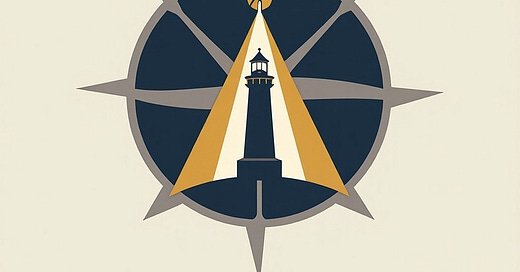📣 “Government of the people, by the people, for the people.”
But what happens when whole groups are being spoken about—yet never spoken with?
That question was at the heart of Lincoln’s moral strategy. His compass points us now to modern-day voiceless populations:
🧍 Undocumented immigrants
🗳️ Disenfranchised voters
🍞 The working poor, the unsheltered, the overlooked
These aren’t just statistics. They’re people—families, students, neighbors—reduced to data and then forgotten.
📊 We Reduce People to Data
"Migrant encounters up 22%"
"Cost of SNAP per household"
"Prison population by demographic"
These metrics flatten lives into talking points. The more we demonize them as costs or threats, the easier it becomes to dehumanize.
🧠 Brizzia & Maria Muñoz Robles: A Voice Among the Silenced
Twins Brizzia and Maria arrived in the U.S. at age 5. They grew up quietly hiding their undocumented status—top students, cross‑country runners, valedictorians—until 2015, when they publicly revealed their story through The Observer at Notre Dame, later reaching The Washington Post Thanks to DACA, they earned degrees in chemical engineering and today work professionally as a scientist and environmental engineer. Their timeline:
Arrived as children from Zacatecas, Mexico
Excelled in school—masked identity for fear & survival
Received DACA (2012)
Broke silence (2015), became valedictorians & published their story
Graduated Notre Dame with degrees in chemical engineering
Today, working in STEM fields, visible and respected in their communities
They weren’t removed or deported—with resilience, legal standing, and community support, they became voices for thousands.
💣 Power, Fear & the Erosion of Truth
This isn’t neglect—it’s strategy. Reducing complex lives to simplistic categories cultivates fear. Fear sells. Fear controls. Facts don’t matter when the narrative has been framed.
These twins broke that frame—not with argument, but with presence. They showed who we silence when we refuse to listen.
🔦 Are We Brave Enough?
The moral test of our time isn’t what we say. It’s whom we choose to see.
📍 Are we brave enough to name what we know is wrong?
📍 To acknowledge that some are punished for presence, not violence?
📍 To declare dignity isn’t tied to documentation?
That’s the question Lincoln asked us to face. Not with slogans. With soul-searching. Perhaps Lincoln experienced a foundational principle of character that he could not ignore—a principle that ultimately cost him his life, but not before he vindicated his soul.
🧭 The Call to Grace
Grace begins where ego ends.
It doesn’t ask who deserves empathy—it asks can I listen?
Lincoln asked a nation to hold up a mirror. Brizzia and Maria showed us how to reflect in real life.
💬 “Government…for the people.”
Not just the loud.
Not just the seen.
But all of us.
This is us—if we refuse to look away.
👣 Teaser for Episode 5 – The Call to Grace
What comes next when we see each other?
In Episode 5, we’ll explore how to rebuild civic empathy in practice—across town halls, dinner tables, and ballot boxes.
Join me as we lay down the map for restoration.






Share this post